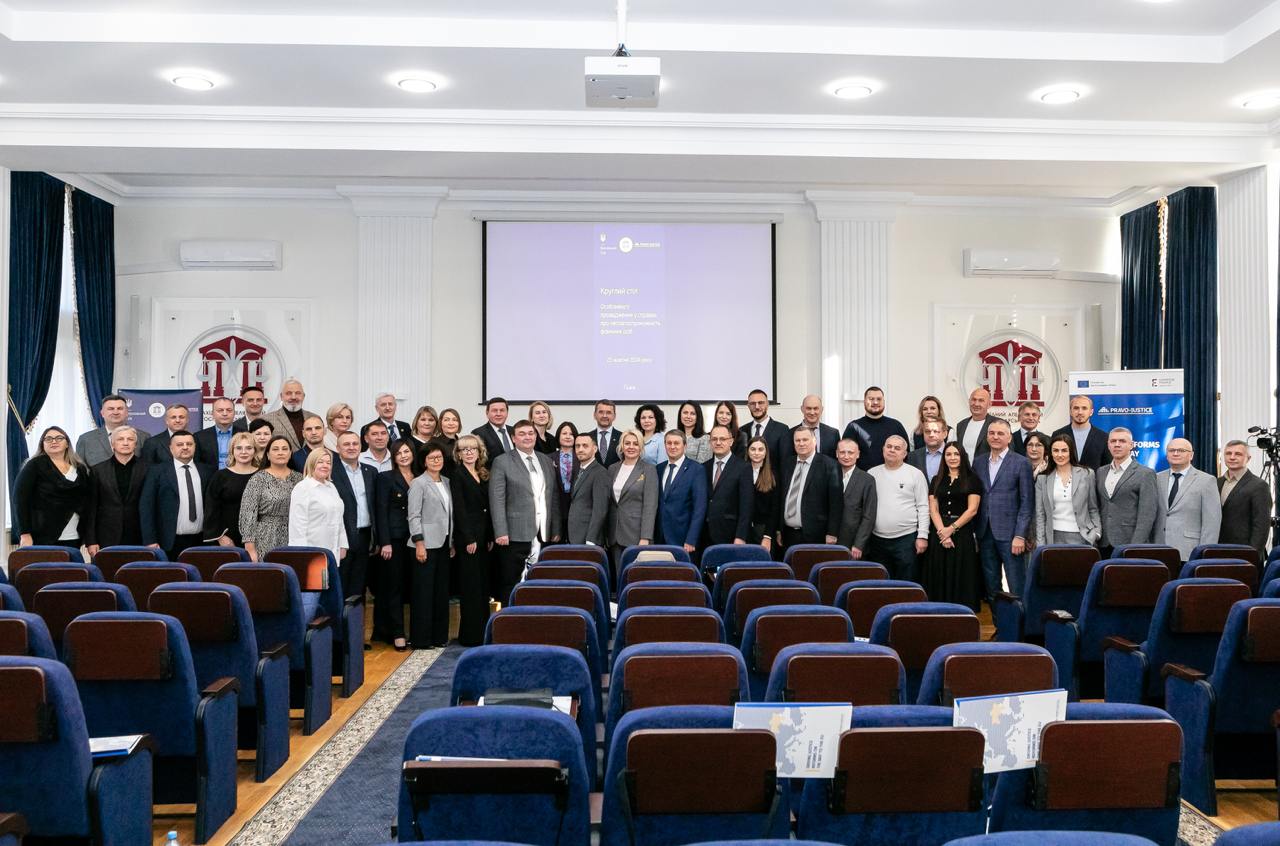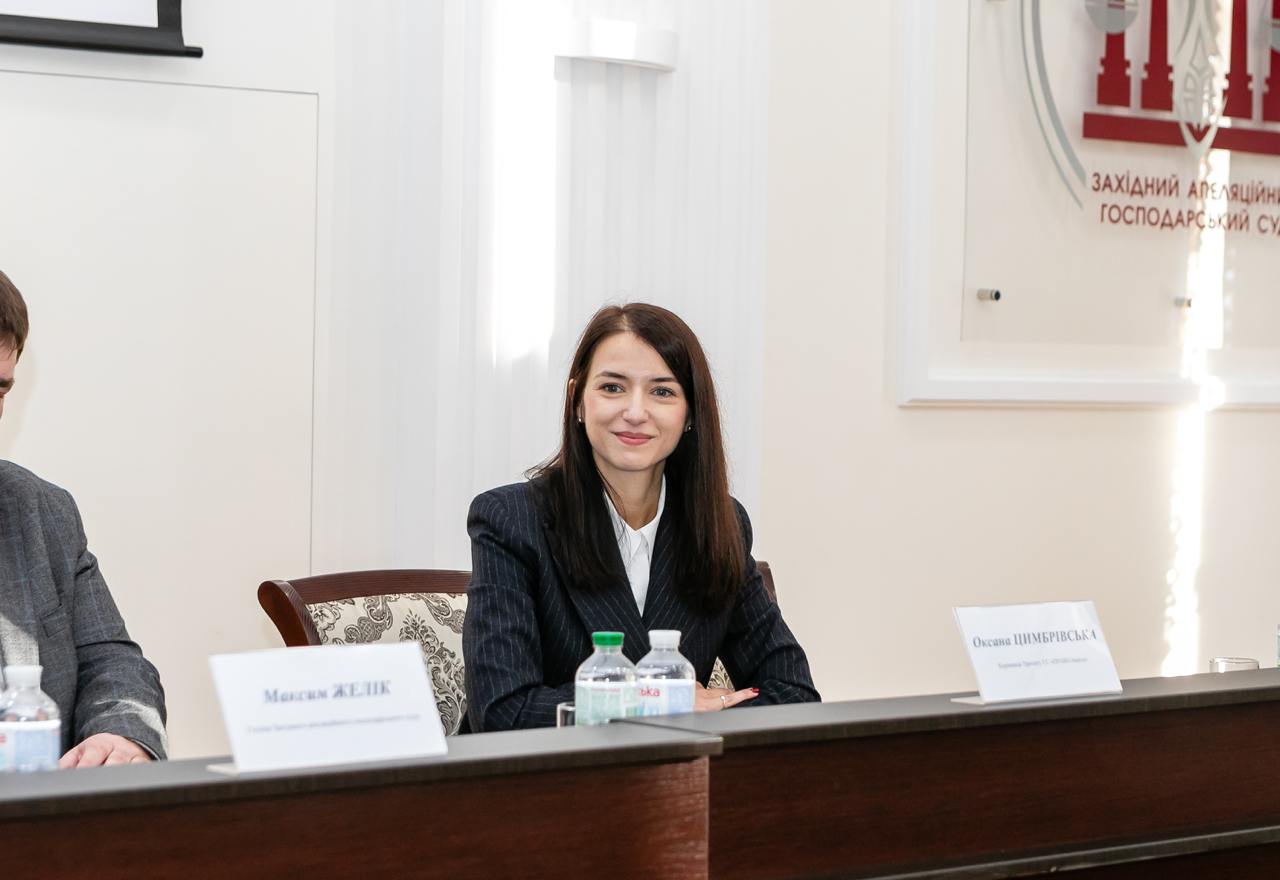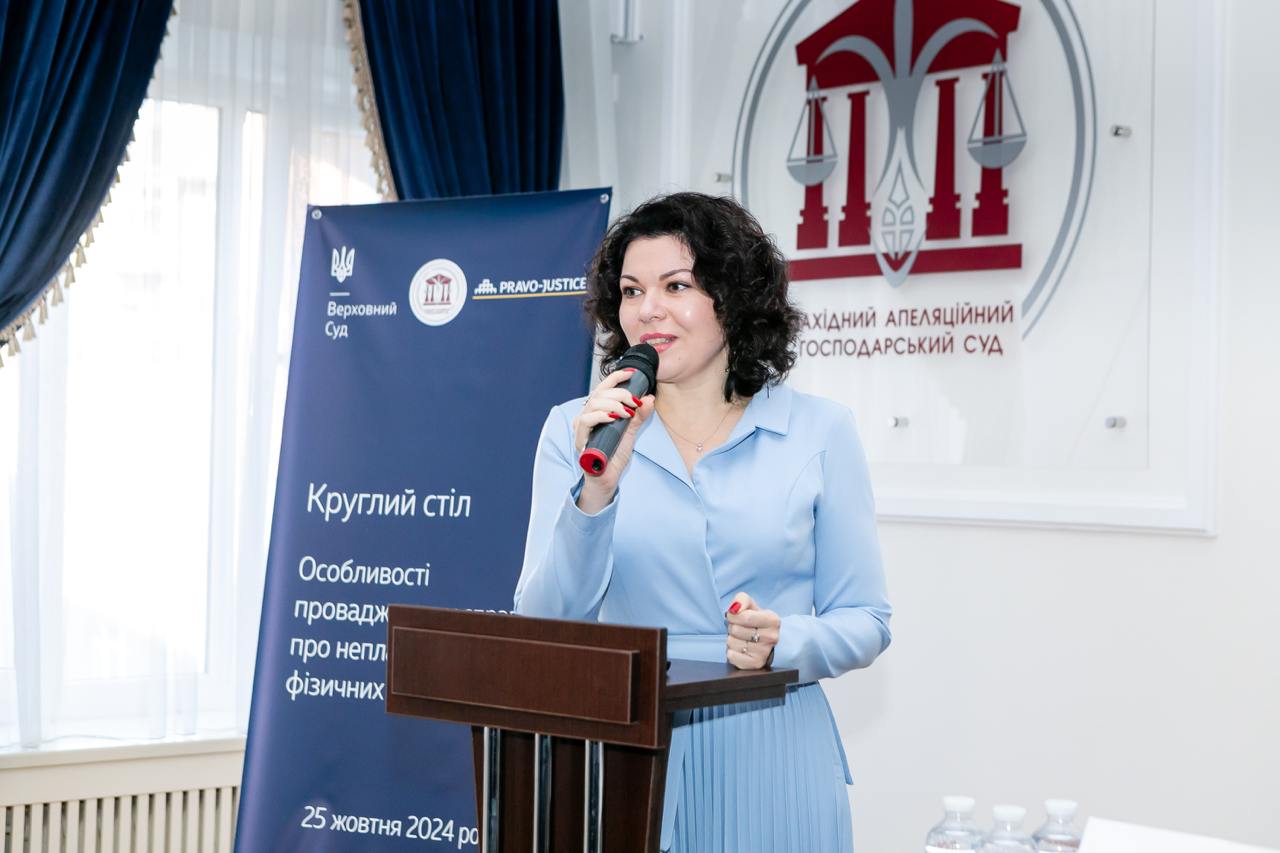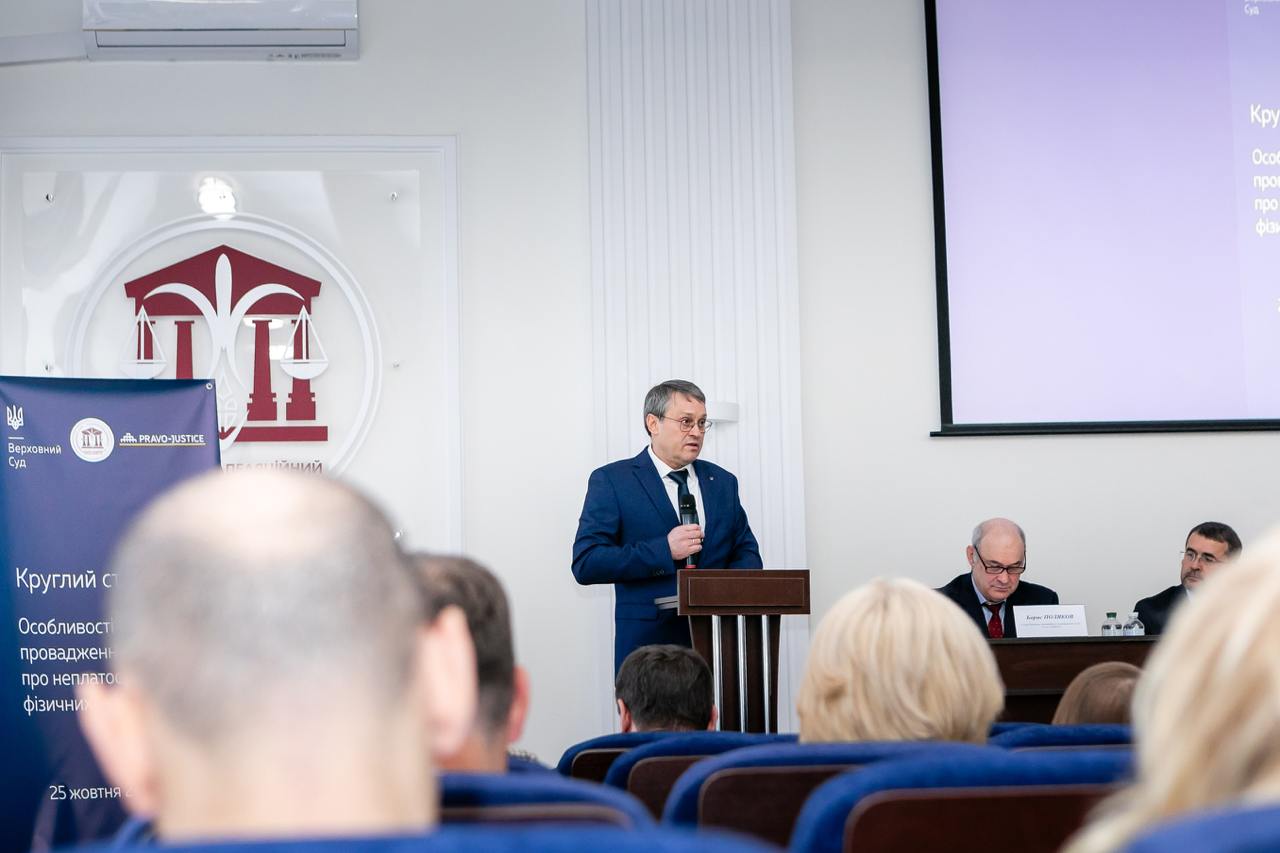The Commercial Court of Cassation within the Supreme Court and EU Project Pravo-Justice Held an Event on Individual Insolvency for Judges

On 25 October, the Commercial Court of Cassation within the Supreme Court together with EU Project Pravo-Justice held a roundtable event ‘Specifics of Individual Insolvency Proceedings’. Justices of the Supreme Court, judges of commercial courts of appeal and local commercial courts, academics, and experts of EU Project Pravo-Justice participated in the event.
‘The Project pays great attention to improving bankruptcy procedures, particularly in the context of European integration and Ukraine fulfilling its international obligations to receive financial support. Improving insolvency procedures is a part of both the most recent EU macro-financial assistance programme for Ukraine and the Ukraine Facility Plan,’ said Oksana Tsymbrivska, Team Leader of EU Project Pravo-Justice.
‘Individual bankruptcy is a rather complex and important topic. This procedure is relatively new to our judiciary and yet extremely relevant, especially in the face of economic instability and military challenges,’ she added.
Oksana Tsymbrivska emphasised that the judiciary must effectively apply this procedure and build consistent jurisprudence.

‘In 2023-2024, there was a significant increase in the number of individual bankruptcy cases in Ukraine. In the first half of 2024, the number of such cases doubled compared to previous years. This trend indicates a growing need to introduce effective mechanisms to address the financial problems individuals face, especially in wartime,’ the Project Team Leader added.
In her speech, Larysa Rohach, President of the Commercial Court of Cassation within the Supreme Court, noted that the roundtable event is a great opportunity to reflect on the progress made, analyse the experience gained, exchange opinions and expertise in this area, hear from experts, learn about international experience in applying individual insolvency and develop a shared vision for the future.
‘We must ensure that these types of cases are considered efficiently and fairly. Therefore, we must improve the trial modalities while remembering the substance of justice,’ said Larysa Rohach.

Olena Fonova, judge of the Commercial Court of Luhansk Region, spoke about the challenges in bankruptcy cases associated with damages caused by the war. Liliia Hrabovan, judge of the Commercial Court of Odesa Region, focused on the challenges of applying the debt restructuring procedure in individual insolvency cases. Oleh Matushchak, judge of the Western Commercial Court of Appeal, spoke about the terms and grounds for advancing the remuneration of a bankruptcy trustee in an insolvency case and the modalities for paying such remuneration. Borys Poliakov, judge of the Northern Commercial Court of Appeal, spoke about improving the legal status of a bankruptcy trustee in individual insolvency proceedings.
Denys Popkov, judge of the Eastern Commercial Court of Appeal, spoke about the problem that enforcement documents no longer demonstrate ‘guilt’ when the debtor gets debt relief in an insolvency case. Volodymyr Pohrebniak, justice of the Commercial Court of Cassation within the Supreme Court, spoke on the principle of good faith in individual insolvency cases.

The roundtable participants specifically focused on exploring international experience in individual insolvency procedures. Oleksandr Biriukov, Doctor of Juridical Sciences, Professor of the Department of Private International Law at the Educational and Scientific Institute of International Relations of Taras Shevchenko National University of Kyiv, spoke about international standards related to individual insolvency. Rodion Polyakov, Doctor of Philosophy at F.G. Burchak Research Institute of Private Law and Entrepreneurship of the National Academy of Legal Sciences of Ukraine, covered particularities of initiating insolvency proceedings against individuals pursuant to the legislation of England, Germany and France.
The event also featured the presentation of findings from an analytical study conducted by experts of EU Project Pravo-Justice on individual insolvency during wartime. Iryna Butyrska, the national expert of the Project, spoke about the distinctive features of insolvency proceedings against individuals in light of their status and circumstances caused by martial law.